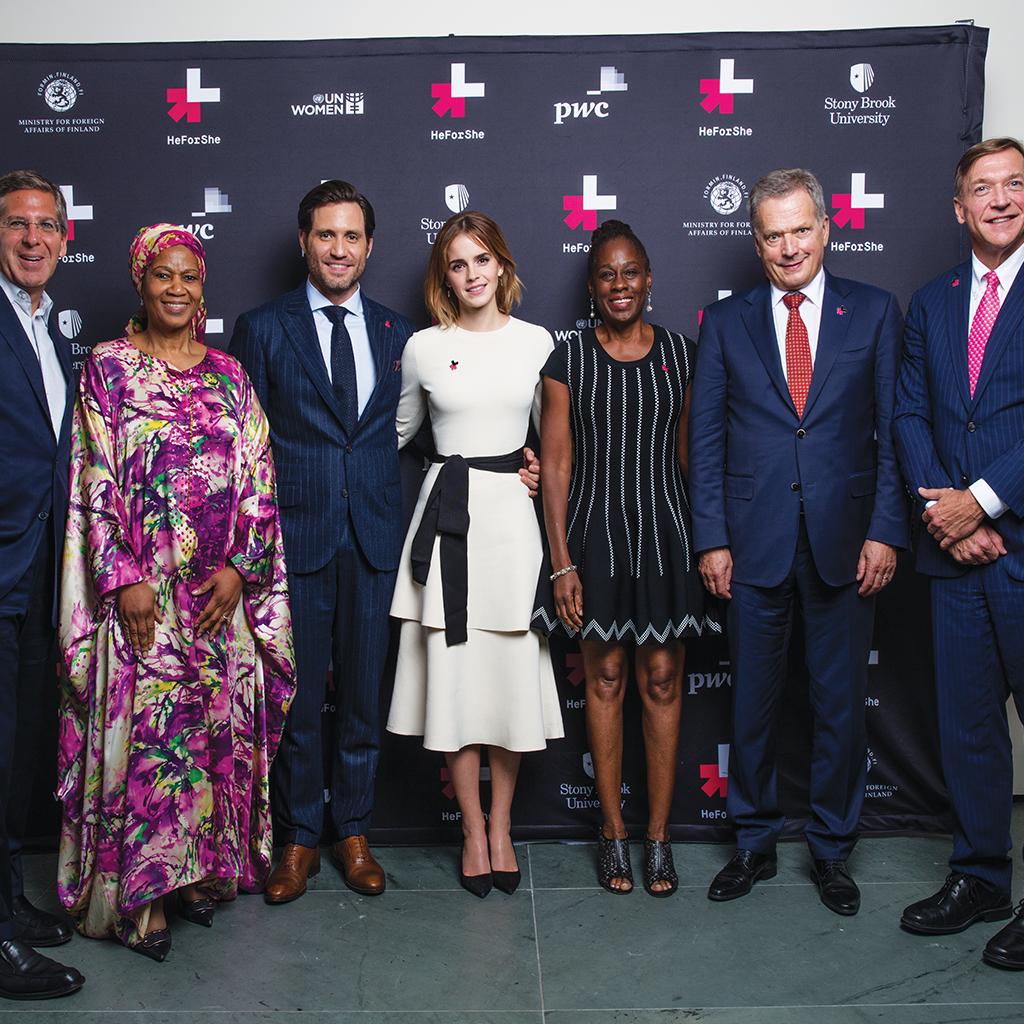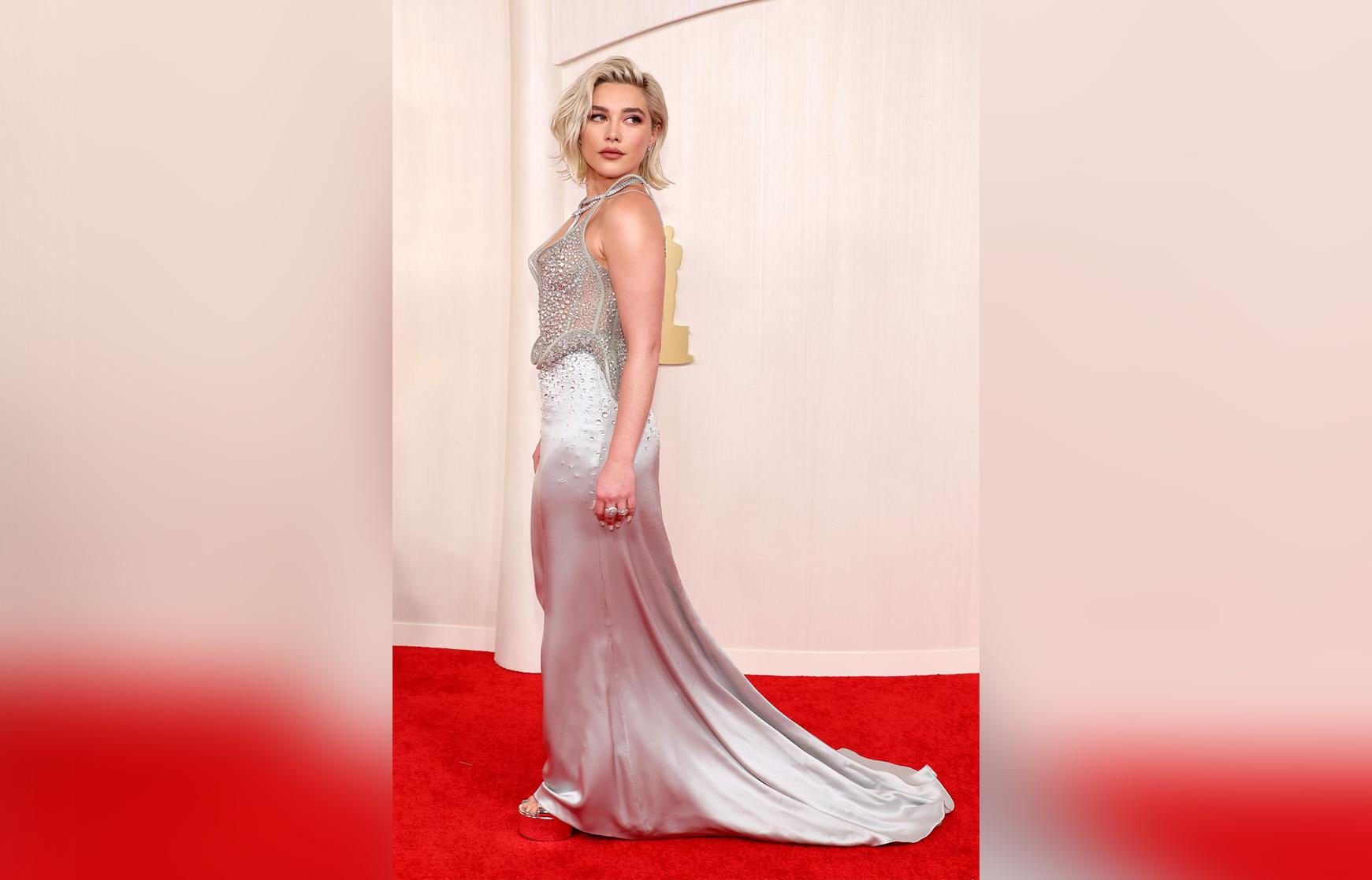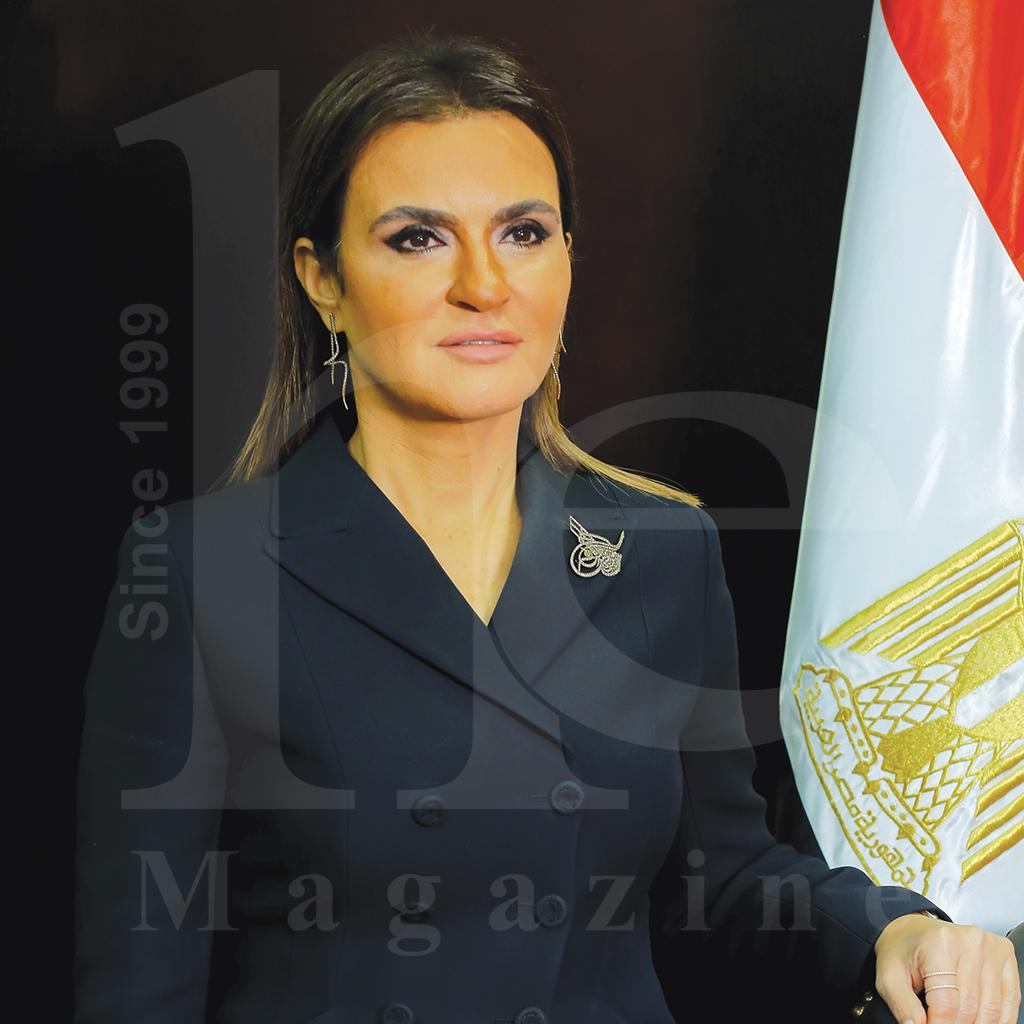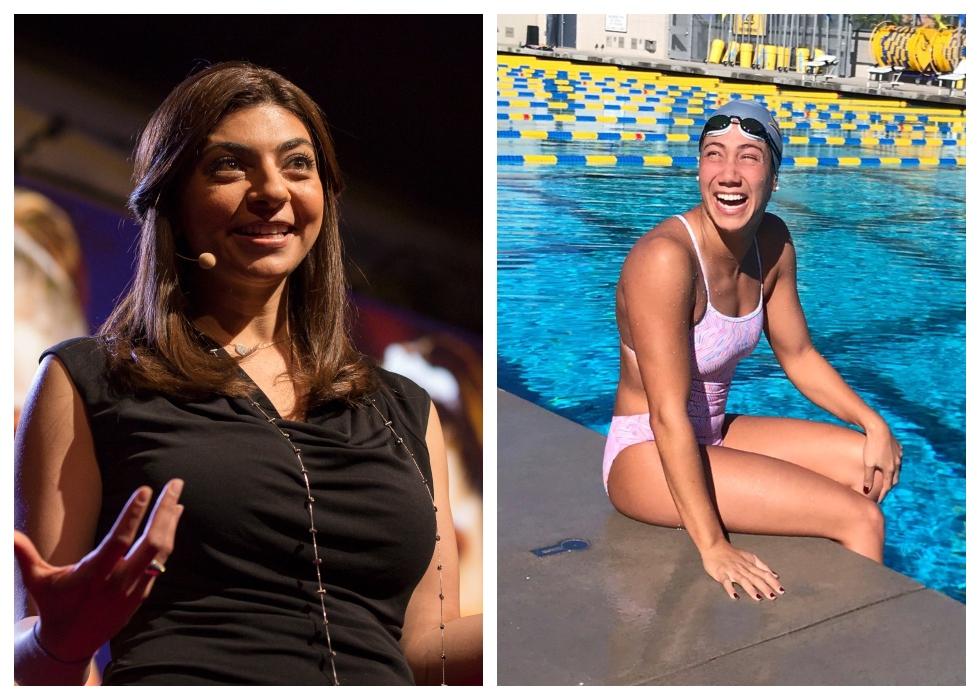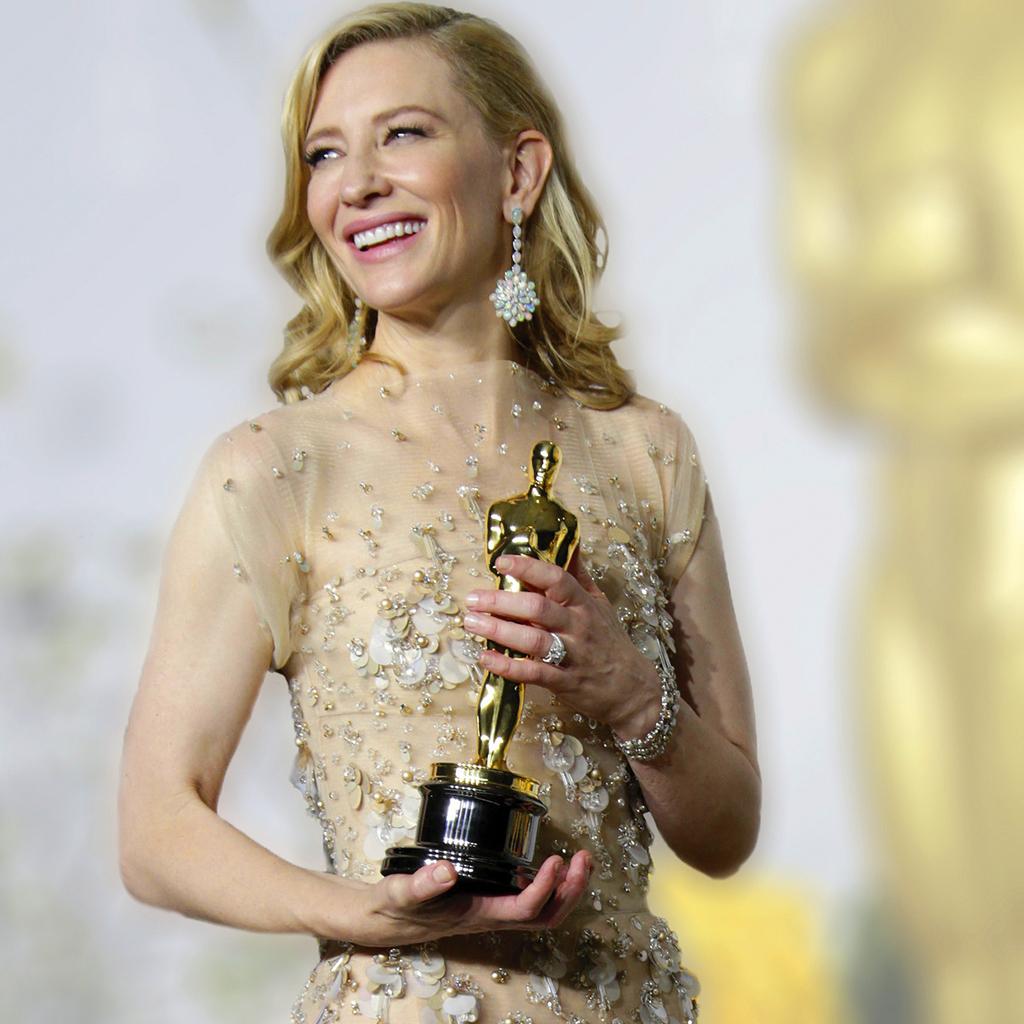
Date: 2014-03-01
An Australian Great
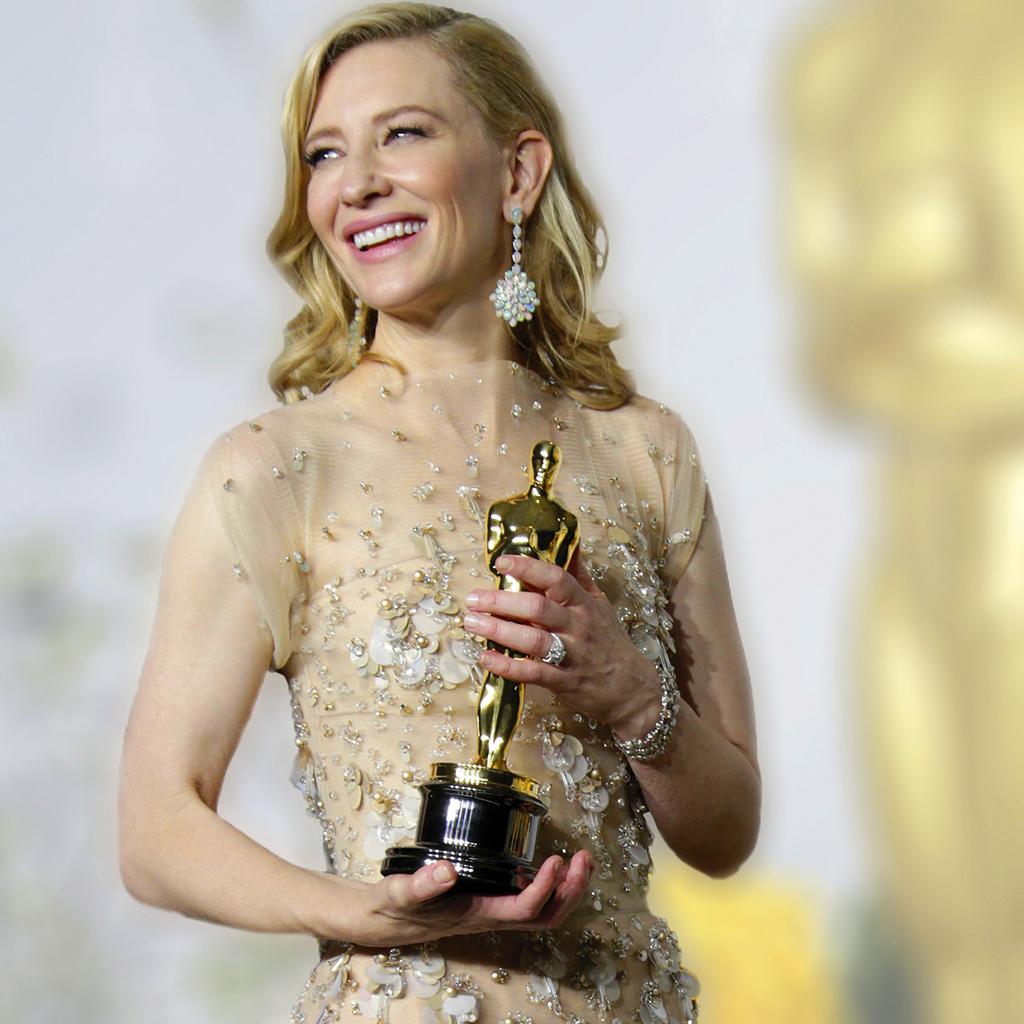
Australian actress Cate Blanchett has triumphed for the second time at the Academy Awards having won the best actress Oscar for her performance in Woody Allen's Blue Jasmine. The win comes straight after her Golden Globe in January for the same role.
She faced competition from Sandra Bullock in Gravity, Amy Adams in American Hustle, Judi Dench in Philomenaand Meryl Streep in Osage County.
Blue Jasmineis a 2013 American film drama written and directed by Woody Allen. It tells the story of a rich Manhattan socialite played by Cate Blanchett falling into poverty and homelessness.
Blue Jasmine received praise from the critics, particularly for Blanchett's performance; additionally, they compared the film to Tennessee William’s' play A Streetcar Named Desire. It was a box office success, earning $94.7 million worldwide against a budget of $18 million and has received several awards and nominations.
Blanchett was born in the Melbourne suburb of Ivanhoe near the Yarra River. Her mother, June née Gamble, was an Australian property developer and teacher, and her father, Robert DeWitt Blanchett, Jr., was a Texas native who was a petty officer in the US Navy and later became an advertising executive. The two met while Blanchett's father's ship, USS Arneb was in Melbourne. She is the middle of three children with an older brother, Bob, who is a computer systems engineer, and a younger sister, Genevieve, who worked as a theatrical designer and received her Bachelor of Design in Architecture in April 2008. Her ancestry includes English, and more distant French and Scottish.
Tragedy struck when Blanchett was 10 and her father suffered a fatal heart attack at the age of 40. In a revealing interview, with the UK’s Daily Mail, the 44-year-old described how she has been driven to succeed by her childhood struggle with money after her father’s death and her mother’s lonely battle to make ends meet.
She also tells how she was so keen for a job aged 14 that she lied about her age, in breach of official rules, to get work in an old people’s home, that she was ‘so broke’ she could not afford coffee every day and that the memory of her early financial ‘panic’ has stayed with her to the top.
Blanchett has described herself as being "part extrovert, part wallflower" during childhood. She attended a primary school in Melbourne at Ivanhoe East Primary School. For her secondary education, she attended Ivanhoe Girls' Grammar School and then Methodist Ladies' College, from which she graduated, where she explored her passion for acting. She studied economics and fine arts at the University of Melbourne before leaving Australia to travel overseas.
While visiting England, Blanchett was forced to leave when her visa expired, and she moved on to Egypt. A fellow guest at a hotel in Cairo asked if she wanted to be an extra in a movie, and the next day she found herself in a crowd scene cheering for an American boxer losing to an Egyptian in the film Kaboria[Crab] starring the Egyptian actor Ahmad Zaki.

She was paid just two Egyptian pounds and offered free falafel to play an American pompom girl in the project she stumbled upon. She explains, "I was in this weird place called The Oxford House and I had to get some money, so the girl I was travelling with hooked up with this Scottish guy who was recruiting American looking extras to be in an Egyptian boxing film.
"They were going to pay two Egyptian pounds that was going to pay my rent for the week, so I said, “Sure.”
"It was so boring. We were given these pompoms and they were telling us to cheer.
"It was so embarrassing and they didn't feed us so I left. I was like 'la Blanchett' walking off the set. I'm sure it was a masterpiece," she said having never seen the film.
However, Blanchett found she couldn’t get away from acting, and she ended up studying in Sydney at the National Institute of Dramatic Art. “It was inescapable,” she says. “I loved the looseness and freedom. Some ideas, like what you’re going to do with your life, take time toform. When something is a vocation, you don’t really make a decision about it.” During Blanchett’s final year at the National Institute of Dramatic Art in 1992, she starred as Clytemnestra in a production of Sophocles’ Electraand made one very important fan. Her drama teacher and director, Lindy Davies, was then sharing a house with another actor, Geoffrey Rush, and urged him to come see this “astonishing young woman”. He did and he never forgot Blanchett’s performance.
Although Blanchett left drama school with a solid reputation, she was by no means the hot property. But in 1993, she generated waves with her win for Best Newcomer at Sydney's equivalent for the Tony Award with her graceful turn in Kafka Dances. That same year, she went on to earn accolades, as well as another award, this time for Best Actress, for her role as a female college student who brings charges of sexual harassment against her professor played by Geoffrey Rush in David Mamet's play Oleannain 1993. She later added the Shakespearean roles of Ophelia and Miranda to her credits, before playing Nina in Anton Chekhov's The Seagull in Australia in 1997.
Blanchett made her London stage debut in 1999 with a revival of David Hare's Plenty, playing protagonist Susan Traherne, whose life post-World War II is trapped in a permanent state of ineffectual dissent against the ensuing peace. Reviews on the play were scathing against both the play and Blanchett's performance. Even years later, Blanchett refuses to read another review of her work.
Blanchett shortly made her film debut in the short Parklandsin 1996, but soon landed her first feature role as one of the females interned in a Japanese camp in Bruce Beresford's WWII-era drama Paradise Road in 1997.

She won the 1997 Australian Film Institute Best Supporting Actress Award as one side of a romantic triangle completed by Richard Roxburgh and Frances O'Connor in the 1997 darkly comic "Thank God He Met Lizzie"
Her rising star status was confirmed when she landed the leading role of the Tudor monarch in the biopic Elizabeth. She held her own in a superior cast that included Geoffrey Rush, Richard Attenborough, Joseph Fiennes and Christopher Eccleston. Blanchett delivered a brilliant performance as the young woman who grows into the stature of her office. By turns an emotional girl and a driven women, her Elizabeth was a multi-dimensional creation that earned numerous accolades including an Oscar nomination for Best Actress.
After carrying off a major film, it perhaps came as a surprise that her follow-up roles were predominantly supporting ones, such as with Blanchett exhibiting her comic side, replete with a New Jersey accent as the wife of air traffic controller John Cusack in Pushing Tinin 1999.
Later that year, she was back in period clothes, first as the wife of a titled man being blackmailed in Oliver Parker's adaptation of Oscar Wilde's An Ideal Husband; then as Meredith in the film The Talented Mr. Ripley," a 1950s-era drama about a slick American who plots to kill a playboy in order to assume his identity in Anthony Minghella's adaptation of the Patricia Highsmithnovel.
Blanchett continued to alternate between showy supporting roles and strong leads. She demonstrated her chameleonic abilities essaying a Southern widow with psychic abilities in the gothic thriller The Gift(2000), and on the heels of that film, was terrific as a gold-digging Russian chorus girl in The Man Who Cried (2001). The former was co-written by her Pushing Tin co-star Billy Bob Thornton, who based Blanchett's character on his own mother. The actress remained busy and consistently employed, reuniting with Thornton in the comedy Bandits, followed by a turn as Kevin Spacey's ex-wife in The Shipping Newsand the titular role in Charlotte Gray (all 2001). Meanwhile, Blanchett had a small, but significant part as the elf queen Galadriel in the epic The Lord of the Ringstrilogy: The Fellowship of the Ring (2001), The Two Towers(2002) and The Return of the King (2003). Additionally, she acted opposite her The Giftco-star Giovanni Ribisi in Heaven(2002), Tom Tykwer's English-language debut.
Blanchett received rave reviews for her turn as the real-life crusading Irish journalist whose life is endangered by criminal elements when she pursues her mob investigation too far in Veronica Geurin(2003). In 2004, she was nominated as Best Supporting Actress at the Independent Spirit Awards for her dual performance as herself and a jealous relative in Jim Jarmousch's anthological film, Coffee & Cigarettes. Blanchett, who Leonardo DiCaprio referred to as the female Daniel Day-Lewis for her chameleon-like qualities, tackled two wildly different roles in 2004. First, she played a pregnant female journalist caught in an off-kilter romantic triangle between an undersea explorer (Bill Murray) and his possible son (Owen Wilson) in Wes Anderson's comedy The Life Aquaticwith Steve Zissou. Next she captured the coltish, often haughty charisma and unforgettable New England cadences of Hollywood superstar Katharine Hepburn, one of Howard Hughes' (DiCaprio) more serious paramours in director Martin Scorsese's impressive Hughes biopic The Aviator. Blanchett was widely recognized for her performance and earned several awards for Best Supporting Actress, including, at last, the Academy Award. Blanchett's victory gave her the unique distinction of becoming the first actress to win an Academy Award for playing an Oscar-winning actress.
Blanchett was little-seen on the big screen for most of 2005, though she did star in the Australian-made thriller Little Fish, playing a recovering drug addict trying to get her life back in order when a criminal kingpin (Sam Neill) forces her to confront her greatest fear. She next starred in Alejandro González Iñárritu's complex Babel(2006), a dense and heartbreaking look at confusion, fear and the depths of love. Set in Asia, Africa and North America, Babel told three separate stories brought together by a single random act of violence. Blanchett played an American tourist travelling with her husband (Brad Pitt) in Morocco when a stray bullet from a rifle crashes through their bus window, seriously wounding her and touching off a series of events, including the couple's Mexican housekeeper (Adriana Barraza) trying to cross the border, a neglected Japanese girl (Rinko Kikuchi) scouring Japan for love in all the wrong places, and two Moroccan boys (Said Tarchani and Boubker Ait El Caid) dealing with their culpability in the shooting.
She next starred in The Good German(2006), playing the former lover of a U.S. Army war correspondent (George Clooney) in post-war Berlin who is trying to escape the war's aftermath and her own dark past before being discovered. Blanchett co-starred in Notes on a Scandal(2006), playing an attractive new art teacher at a London high school engaging in an illicit affair with a 15-year-old student (Andrew Simpson) whose secret is guarded by the school's obsessively voyeuristic history teacher (Judi Dench), a role that earned her a Golden Globe Award nomination for Best Performance by an Actress in a Supporting Role. Though she lost out to newcomer Jennifer Hudson, Blanchett earned an Oscar nomination for Best Supporting Actress. In 2007, Blanchett returned to familiar territory withThe Golden Age, Shekhar Kapur's sequel to Elizabeth that focused on the Virgin Queen's relationship with Sir Walter Raleigh (Clive Owen). Even more impressive, Blanchett essayed singer-songwriter legend Bob Dylan in the unique film chronicling Dylan's life, I'm Not Here. So impressive was she morphing into a man that she won the Golden Globe for Best Supporting Actress, paving the way to an Oscar nomination.
Hot off the critical praise she received for I'm Not There, Blanchett fulfilled a long-time ambition to play a villain when she was cast as a Soviet agent with psychic abilities and karate skills who battles Indiana Jones(Harrison Ford) for the mysterious crystal skull in Indiana Jones and the Kingdom of the Crystal Skull (2008). From there, she returned to more upscale drama with The Curious Case of Benjamin Button(2008), where she played the lifelong love of a man (Brad Pitt) who mysteriously ages backwards. While Pitt received the lion's share of critical praise, Blanchett did earn several critics award nominations.
On 5 December 2008, Blanchett was honoured with a star on the Hollywood Walk of Fame at 6712 Hollywood Boulevard in front of Grauman’s Egyptian Theatre.

In 2010, she played Lady Marian to Russell Crowe's Robin Hood in director Ridley Scott's traditional take on Robin Hood(2010), which fared well at the global box office despite tepid reviews from critics.
Meanwhile, Blanchett relished the opportunity to again play the villain, this time portraying a double-crossing CIA officer trying to hunt down and kill a 16-year-old girl (Saoirse Ronan) trained by her CIA agent father (Eric Bana) to be a ruthless assassin in the kinetic action thriller Hanna(2011). She followed up by reprising Galadriel for the highly-anticipated adaptation The Hobbit, a two-part epic prequel to The Lord of the Ringswas released in late 2012 and 2013.
She achieved further success in 2013 for her starring role in Blue Jasmine, earning her a third Golden Globe Award and a sixth Academy Award nomination.
Blanchett's husband is the Australian playwright and screenwriter Andrew Upton, whom she met in 1996 on the set of a TV programme. They were married on 29 December 1997and have three sons: Dashiell John, born 3 December 2001, Roman Robert, born 23 April 2004,] and Ignatius Martin, born 13 April 2008.
After making Brighton, England, their main family home for much of the early 2000s, she and her husband returned to their native Australia. In November 2006, Blanchett stated that this was due to a desire to decide on a permanent home for her children, and to be closer to her family as well as a sense of belonging to the Australian theatrical community. She and her family live in Bulwarra, an 1877 sandstone mansion, in the harbourside Sydney suburb of Hunter’s Hill. It was purchased for A$10.2 million in 2004 and underwent extensive renovations in 2007 to be made more "eco-friendly".
In early 2009, Blanchett appeared in a series of special edition postage stamps called "Australian Legends of the Screen", featuring Australian actors acknowledged for the "outstanding contribution they have made to Australian entertainment and culture". She, Geoffrey Rush, Russell Crowe, and Nicole Kidman each appear twice in the series: once as themselves and once in character; Blanchett is depicted in character from Elizabeth: The Golden Age.
Blanchett has spoken passionately about feminism and politics, telling Sky News in 2013 that she was a concerned 'a wave of conservatism sweeping the globe' was threatening women's rights. She has also commented on the pressures women in Hollywood face now: "Honestly, I think about my appearance less than I did ten years ago. People talk about the golden age of Hollywood because of how women were lit then. You could be Joan Crawford and Bette Davis and work well into your 50s, because you were lit and made into a goddess. Now, with everything being sort of gritty, women have this sense of their use-by date."
